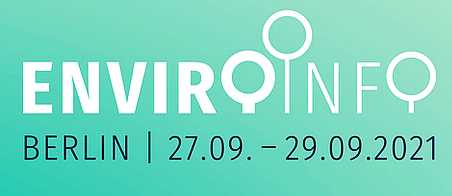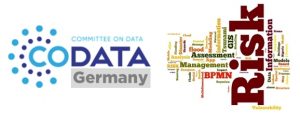RIMMA2021 @ENVIROINFO2021

Special Track
„ Advances and Gaps in Risk Information Management”
– Challenges in Implementing the UN SENDAI Framework –

RIMMA2021 is organized in cooperation with CODATA-Germany and RIMMA Community as a Special Track within ENVIROINFO2021 International Conference and INFORMATIK 2021 – 51st Annual Conference of the German Informatics Society. RIMMA2021 is t h e event to discuss current best practice, deficits/demands, innovations and applications in Risk Information Management, especially in all phases of the natural/technical disaster management cycle.
Scope
The UN SENDAI Framework for Disaster Reduction enforces the demands for complex and dynamic information availability, coherence and synergies for substantial improvements in planning, operational response and recovery.
Common approaches between safety and security practitioners and the vulnerable civil society consider human factors, societal, (psycho-)social, cultural, ethical as well as organizational aspects in all phases of the disaster cycle. The specific difference lies in enabling inclusive participation not only in preparedness phases but also in the post-disaster evaluation of goal-reaching success and take-up of suggestions for consideration in revised action and adaptation plans.
The complete set of information management best practice methods especially supports the principles of “critical thinking”, enabling extensive reporting, transparent analysis, compliance to regulations and other boundary conditions. Information control obligations include phases of retrace, audit, reexamination, analysis, avoidance of malpractice, and indications on weaknesses/vulnerabilities.
Call for Abstracts/Papers
This Special Track especially addresses contributions in the following areas:
- risk information management, risk information models
- disaster risk reduction and SDGs information synergy,
- risk information spaces, cross-organizational interoperability, standards development, testbeds
- cross-domain / cross-program coherence and accountability
- risk information processes modelling and applications, event-driven analytics and architectures
- common operational picture, digital situational awareness,
- logistics in support of situations, scenario development and decision support
- risk & security information system structure, mutual semantic mapping and components,
- risk and multi-risk cartographic issues
- dynamic information change in time and space,
- risk & security modeling issues for critical infrastructure (e.g. health institutions, factories, railways, highways, pipelines, maritime traffic etc.)
- disaster management and emergency preparedness, prevention, alert, response and mitigation
- information processing with special regard to information system structural aspects in risk model methodology, requirements engineering and implementation
- documentation, archiving, and open access to risk, disaster and security information
- CBRN-E risks issues for critical infrastructures, citizens, and the built environment
- risk communication
- urban / smart city resilience and risk, safety&security information and mapping
The processing and use of information according to the requirements of the UN SENDAI Framework holds enormous potential for new ways of enabling just-in-time foresight, situation management and ex-post evaluation. For a successful decision and action support, we have to make the best possible use of this potential.
According to the CODATA principles of the broadest interdisciplinary discourse in the domain of Data for Science and Technology, submissions are expected from different fields of the sci/tech communities, developers and practitioners to exchange best practices, indicate on deficits and initiate recommendations for future research and development.
Submissions and participation are recommended for stakeholders in RISK governance and practice: operational forces, law enforcement agencies/administration, private sector, NGOs, Media and R&D.